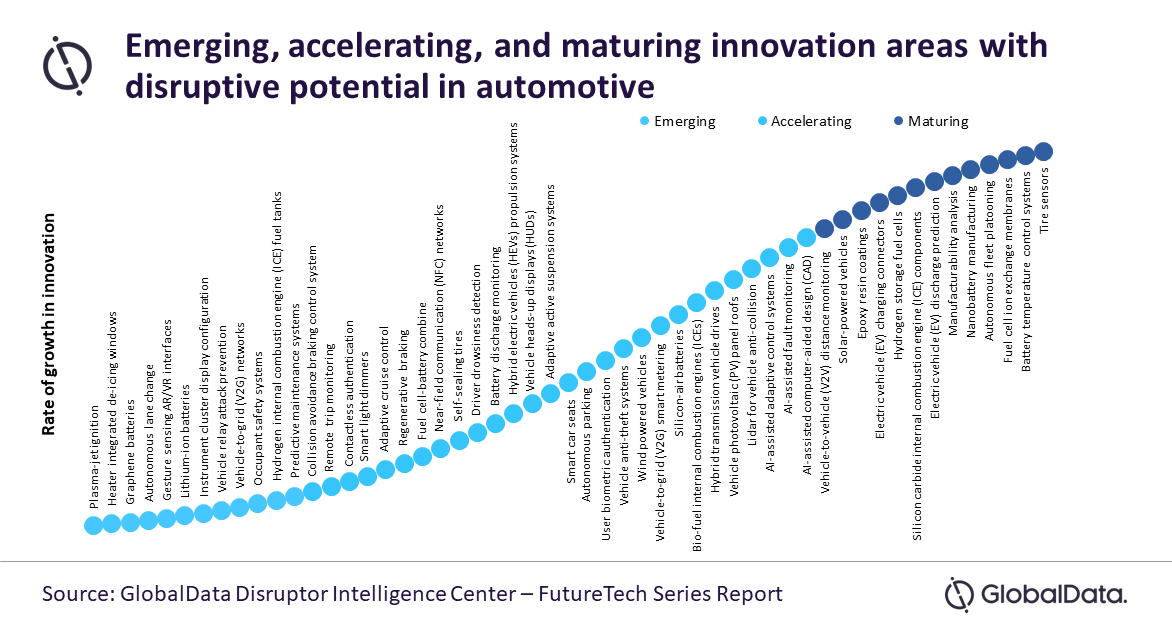 –
–
To drive future growth, says GlobalData
Lagos — Energy innovations, technological advances, societal tastes, environmental concerns, and changing emission regulations are prompting the automotive industry to change the way vehicles are designed and built.
Against the backdrop, automakers are gearing up to improve fuel efficiency, control car emissions, offer greater safety benefits, higher customer differentiation, and minimize costs and supply chain risk, says GlobalData, a leading data and analytics company.
Kiran Raj, Practice Head of Disruptive Tech at GlobalData, comments: “A growing wave of technology-driven megatrends around ‘connected cars, autonomous driving, shared mobility, and electric vehicles’ (CASE) framework is already creating a shift towards the car of tomorrow. The next three to five years will see a diverse range of innovative headwinds shifting the dimensions of mobility toward new horizons.”
Shagun Sachdeva, Project Manager of Disruptive Tech at GlobalData, comments: “The shift in the auto industry is just the tip of the iceberg in terms of technological disruptions in 2023 and beyond. AI, IoT, cybersecurity, big data and robotics, among other technologies, will not only change the future of mobility, but also enable automakers to become more resilient, reliable, scalable, and innovative.”
GlobalData’s FutureTech Series report, “Computer on Wheels – Key Disruptive Forces in Automotive,” highlights over 50 disruptive forces driving tech transformation in the automotive industry as emerging, accelerating, and maturing innovation areas based on their rate of growth in innovation.
Vehicle-to-grid (V2G) networks offer bi-directional charging and enable the transfer of electricity back to the grid. V2G technology is sustainable as it allows batteries to get charged during renewable energy production phases which makes it possible to consume mainly green energy. In December 2022, Toyota Motor North America and Oncor Electric Delivery collaborated to research and demonstrate the benefits of V2G technology.
Gesture sensing AR/VR interfaces provide a hands-free way to interact with the vehicle systems, help drivers with situational awareness by warning them of road hazards and displaying other similar alerts, allowing them to react quickly and avoid accidents. They offer enhanced driving experience, blind-spot visibility, and convenience as well as safety. In May 2022, Volkswagen and Microsoft announced a partnership to create a new moving platform feature for the HoloLens 2, designed to let the augmented reality headset work in places such as moving vehicles.
Plasma-jet ignition replaces traditional spark plugs and allows for a much wider range of fuel mixtures and operating conditions for automakers such as burning extremely lean mixtures at lower temperatures to produce less NOx. In June 2022, Transient Plasma Systems (TPS) demonstrated an ignition module that uses nanosecond pulses of plasma to ignite the air-fuel mixture within the engine’s cylinders.
Graphene batteries are more economical, scalable, sustainable, and allow faster charging as they offer higher electrical conductivity than lithium-ion batteries. In December 2022, NASA announced that it is testing a new graphene battery with an improved power density that can be used in aviation and EVs.
Sachdeva concludes: “While automakers remain focused on addressing the critical challenges right from pandemic-driven shortages, supply chain bottlenecks to rising commodity prices and uncertain consumer demand, the automotive industry is witnessing a rebound.
“However, in the face of global geopolitical instability, record-high inflation, rising commodity costs, massive lay-offs, the looming fear of potential recession, automakers will need to reassess their strategy to address shortages such as semiconductors, retool their offerings and realign their business models to remain stable in the rapidly evolving mobility ecosystem.”
Follow us on twitter



